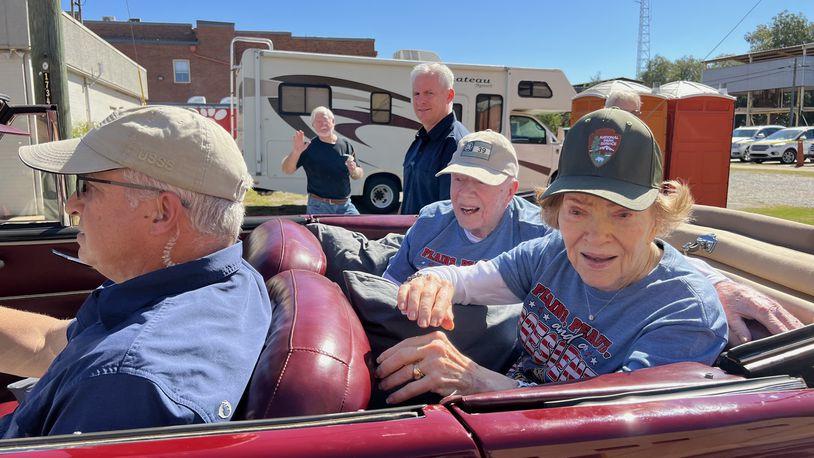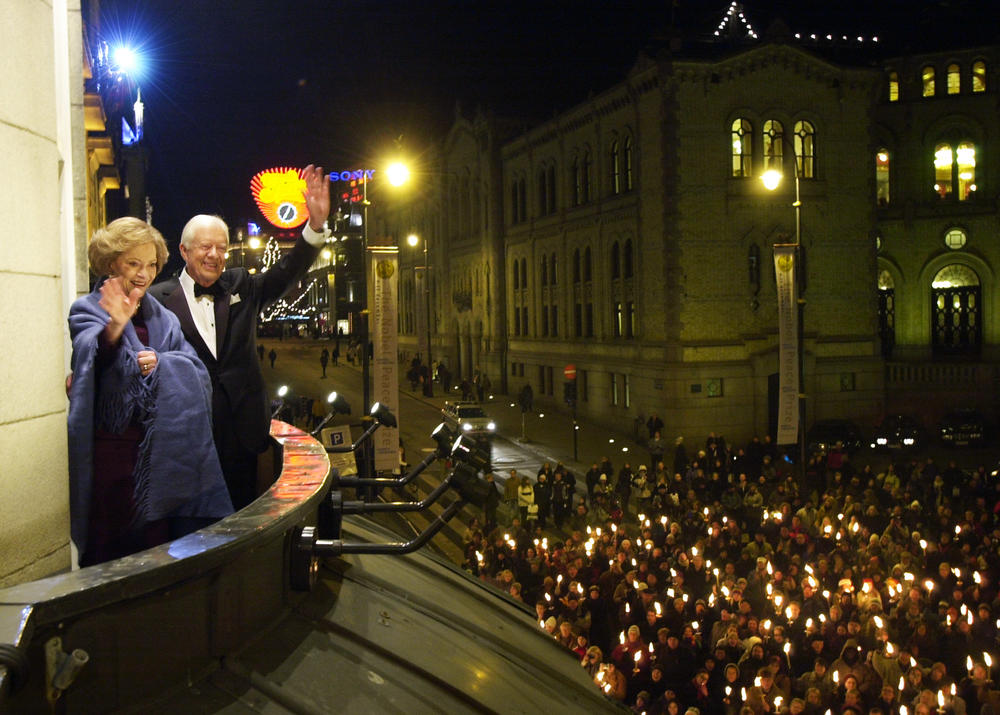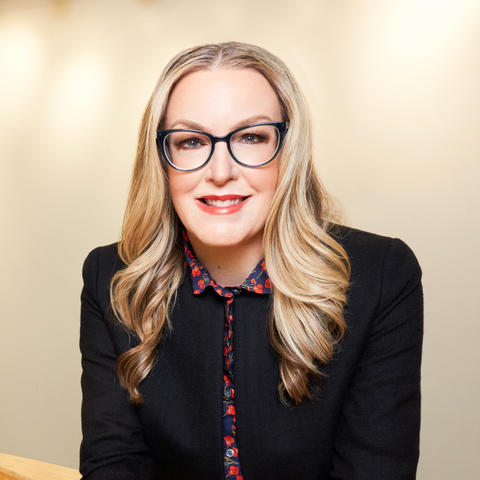
Caption
The most recent public photo of the Carters depicts the pair riding through Plains Peanut Festival in Plains, Ga. on Sept. 24, 2022 in a red 1946 Ford convertible. The car was a gift from country singers Trisha Yearwood and Garth Brooks. / Carter Center
Credit: Courtesy of the Carter Center, photo by Jill Stuckey



